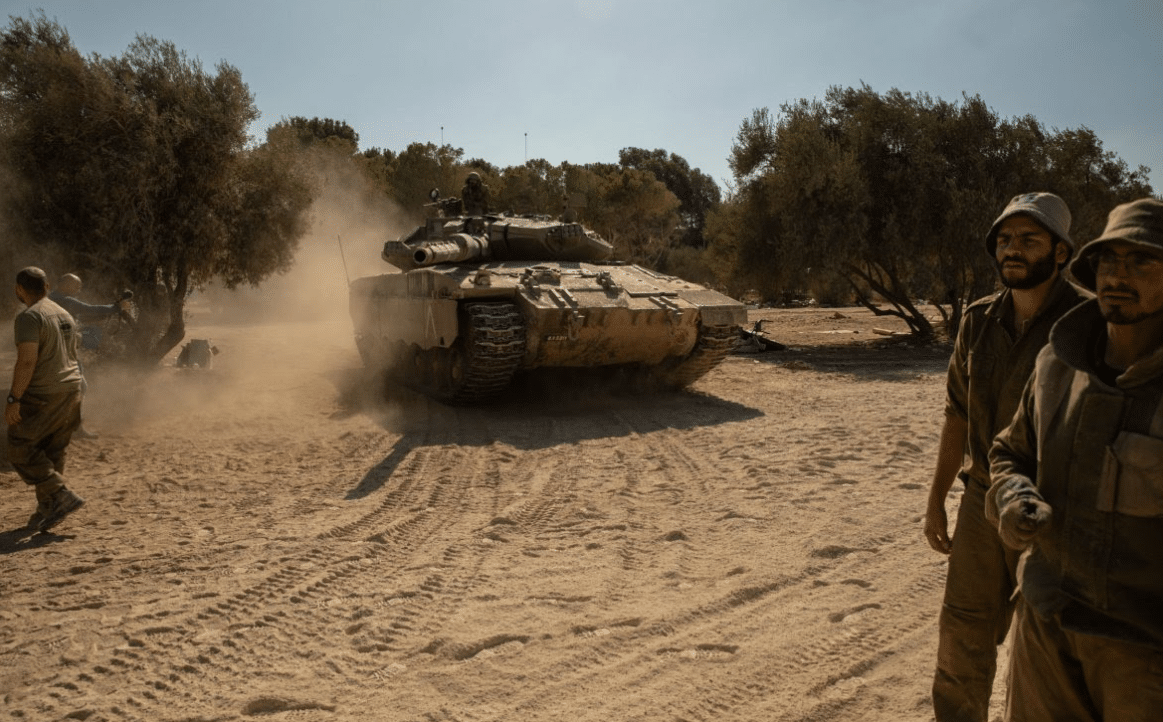No military fighting an entrenched enemy in dense urban terrain in an area barely twice the size of Washington D.C. can avoid all civilian casualties. Reports of over 25,000 Palestinians killed, be they civilians or Hamas, have made headlines. But Israel has taken more measures to avoid needless civilian harm than virtually any other nation that’s fought an urban war.
In fact, as someone who has served two tours in Iraq and studied urban warfare for over a decade, Israel has taken precautionary measures even the United States did not do during its recent wars in Iraq and Afghanistan.
I say this not to put Israel on a pedestal or to diminish the human suffering of Gazans but rather to correct a number of misperceptions when it comes to urban warfare.
[The Newsweek Op-Ed continues]
Third, one of the best ways to prevent civilian casualties in urban warfare is to provide warning and evacuate urban areas before the full combined air and ground attack commences. This tactic is unpopular for obvious reasons: It alerts the enemy defender and provides them the military advantage to prepare for the attack. The United States did not do this ahead of its initial invasion of Iraq in 2003, which involved major urban battles to include in Baghdad. It did not do this before its April 2004 Battle of Fallujah (though it did send civilian warnings before the Second Battle of Fallujah six months later).
By contrast, Israel provided days and then weeks of warnings, as well as time for civilians to evacuate multiple cities in northern Gaza before starting the main air-ground attack of urban areas. The Israel Defense Forces (IDF) employed their practice of calling and texting ahead of an air strike as well as roof-knocking, where they drop small munitions on the roof of a building notifying everyone to evacuate the building before a strike.
No military has ever implemented any of these practices in war before.
The IDF has also air-dropped flyers to give civilians instructions on when and how to evacuate, including with safe corridors. (The U.S. implemented these tactics in its second battle of Fallujah and 2016-2017 operation against ISIS in Mosul.) Israel has dropped over 520,000 pamphlets, and broadcast over radio and through social media messages to provide instruction for civilians to leave combat areas.
Israel’s use of real phone calls to civilians in combat areas (19,734), SMS texts (64,399) and pre-recorded calls (almost 6 million) to provide instructions on evacuations is also unprecedented.
The IDF also conducted daily four-hour pauses over multiple consecutive days of the war to allow civilians to leave active combat areas. While pauses for civilian evacuations after a war or battle has started is not completely new, the frequency and predictability of these in Gaza have been historic.
[The Newsweek Op-Ed continues]
Some have argued that Israel should have waited longer to start its war, should have used different munitions and tactics, or should not have conducted the war at all. These calls are understandable, but they fail to acknowledge the context of Israel’s war against Hamas, from the hundreds of Israeli hostages to the daily rocket attacks on Israeli civilians from Gaza to the tunnels, and the real existential threat of Hamas poses Israel and its citizens, who live within walking distance of the warzone.
To be clear, I am outraged by the civilian casualties in Gaza. But it’s crucial to direct that outrage at the right target. And that target is Hamas.
It is outrageous that Hamas spent decades and billions of dollars building tunnels under civilian homes and protected areas for the sole purpose of using Palestinian civilians as human shields. It is outrageous that Hamas does not allow civilians in their tunnels, that Hamas says and takes actions to create as many civilian deaths as possible—both its own and Israeli. The atrocities committed on Oct. 7 are outrageous. That Hamas fights in civilian clothes, intermixed within civilians, and launches rockets at Israeli civilians from Palestinian civilian areas is outrageous.
The sole reason for civilian deaths in Gaza is Hamas. For Israel’s part, it’s taken more care to prevent them than any other army in human history.
John Spencer is chair of urban warfare studies at the Modern War Institute (MWI) at West Point, codirector of MWI’s Urban Warfare Project and host of the “Urban Warfare Project Podcast.” He served for 25 years as an infantry soldier, which included two combat tours in Iraq. He is the author of the book Connected Soldiers: Life, Leadership, and Social Connection in Modern War and co-author of Understanding Urban Warfare. The views expressed in this commentary are his own.
The views expressed in this article are the writer’s own.

